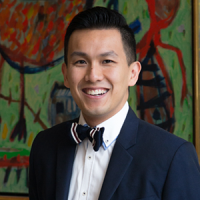Articles / Why do so few GPs plan to vote in the RACGP election

A little over a third (37%) of more than 900 GP respondents who use RACGP as their CPD home plan to vote for the next College president, a Healthed survey this week has found. Despite being a clear minority, this would represent a significant increase in voter turnout compared to elections past.
Only about 15% of eligible members voted in 2022, and 11% in 2020 — and it’s unclear whether the good intentions of survey respondents will actually translate to more ballots this time around.
Thirty-one percent of GPs in Healthed’s survey said categorically that they don’t plan to vote, while 32% were undecided.
Dr Mukesh Haikerwal, deputy chair of the Australian GP Alliance and former president of the AMA, said the figures are concerning – but reflect what’s happened in past years.
“The people that do the elections – the Electoral College — is a very small percentage of the members of the RACGP. And that’s a very sad reflection of democracy,” Dr Haikerwal said.
To find out, we analysed more than 300 responses from GPs who either said definitively that they don’t intend to vote, or who were undecided about participating (after excluding those who weren’t eligible to vote). Some key themes emerged.
Lack of knowledge about candidates: 41.7% (136 responses)
Lack of interest: 20.6% (67 responses)
Distrust or cynicism towards RACGP: 17.5% (57 responses)
Time constraints: 13.2% (43 responses)
Awaiting more information: 7.1% (23 responses)
For many GPs, multiple compounding factors are at play.
“Because I don’t know anything about the doctors to vote for,” one GP explained. “Also, after elections, I can’t approach the doctor elected for any problem I have (he/she is not approachable).”
“I feel there is no connection between the president of the RACGP and me as a GP. I really don’t care, they are all the same to me, all are far away from GPs… I don’t feel their presence, you can’t talk to them after elections,” they continued, summing up many of the key themes expressed by other survey respondents.
While the five candidates were announced in July, our analysis found that more than 40% of GPs who don’t have firm intentions to vote do not feel adequately informed about the candidates.
“I don’t know enough about the candidates to assess who would be best,” was a common refrain.
“Lack of knowledge of candidates and lack of belief that different candidates will result in significantly different outcomes for RACGP.” – GP who is not planning to vote
“I don’t know the candidates. My vote would have little effect,” another said.
The RACGP has set up a page with each candidate’s CV, a statement about their priorities and focus, and other relevant information here.
About one in five GPs who aren’t committed to voting said they just aren’t interested, and a similar proportion said their distrust that the College would effectively represent them was keeping them from voting.
“I don’t feel that either of the professional bodies represents their members in any practical ways. They seem to be run by political self-seekers without interest or empathy for those at the coalface,” one GP said.
“I don’t feel it would make any difference. I want RACGP to improve itself as an organisation, become more transparent (it currently isn’t) and work for the needs of its constituents,” another GP explained.
“I feel, as others have also voiced, that the College remains out of touch with the needs/reality of general practice,” said another.
Others described themselves as “disengaged,” “ambivalent,” “despondent about poor representation,” and so on. Some said voting just isn’t a priority.
But some are warning that not voting will only make things worse.
Dr Haikerwal says it’s time to stop grumbling, and take action.
“We have the journals, the newspapers, the social media full of stories of woe, and people aren’t actually prepared to put their hand up and do anything except whinge and attack anybody who’s trying to do anything from any of the organisations,” he said.
“And then when they can do something, even if it’s just trying to find a candidate that would do what they want them to do — by looking at their data and having a vote — they’re choosing not to vote, according to your survey, which is backed up by previous years’ worth of experience of who actually votes in these elections. And to me, that’s very sad,” Dr Haikerwal added.
Healthed’s CEO Dr Ramesh Manocha said the pattern for too many years has been for a tiny percentage of GPs to vote.
“They often tend to have strong political alignments with certain candidates, and therefore are not representative of the larger body of GPs,” he said, noting this can lead to disenfranchisement.
“This creates a vicious self-fulfilling cycle of apathy and cynicism — and the only way to break the cycle is for everyone to vote.”
Dr Haikerwal also points out that GPs’ concerns about not really knowing or connecting with the candidates are actively being addressed, with several ways to meet them and let them know your gripes, hopes and aspirations.
“I think it’s a very good opportunity to consider what are the concerns, what are the gains we’ve had, where do we want to go, who’s going to give the best roadmap to get there, and even interact with them, because they’re actually inviting us to email them, talk to them…They’re doing face-to-face Zooms and all sorts of things,” he said.
Voting opens on 12 August and closes on Thursday the 22nd — with a Q and A webinar with the five candidates to be held on the 14th. You can also check out their CVs, and statements about what they’re campaigning for on the RACGP website here.

RSV Prevention in Infants and Pregnant Women

STIs – Common and Tricky Cases

Role of Testosterone During Menopause - Evidence vs Hype

Vision and Driving Fitness: Key Insights for Health Practitioners
Yes
No
Listen to expert interviews.
Click to open in a new tab
Browse the latest articles from Healthed.
Once you confirm you’ve read this article you can complete a Patient Case Review to earn 0.5 hours CPD in the Reviewing Performance (RP) category.
Select ‘Confirm & learn‘ when you have read this article in its entirety and you will be taken to begin your Patient Case Review.
Menopause and MHT
Multiple sclerosis vs antibody disease
Using SGLT2 to reduce cardiovascular death in T2D
Peripheral arterial disease
